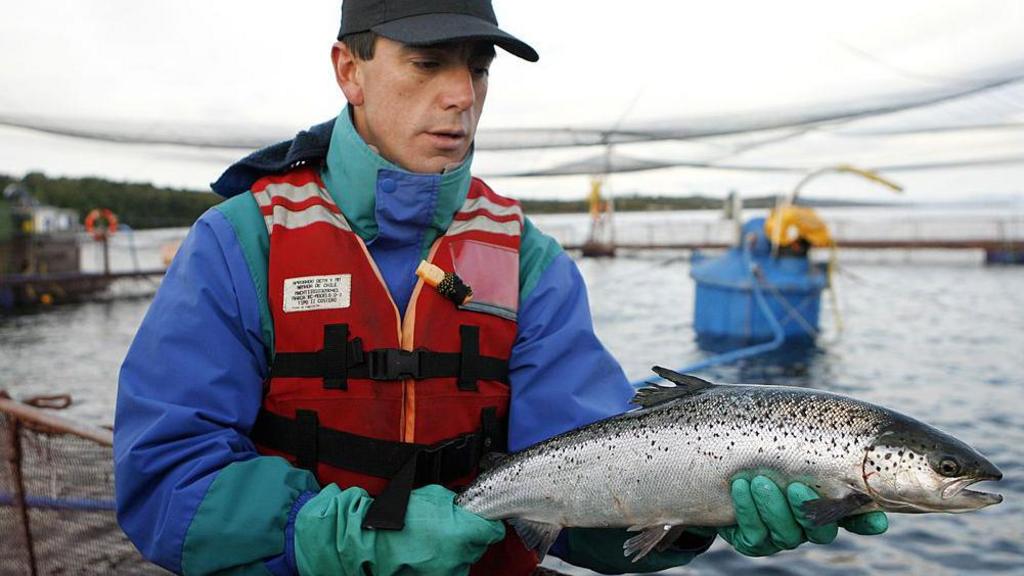Chile, the world’s second-largest farmed salmon exporter and leading supplier to the U.S., faces ongoing controversy over numerous salmon farms operating within designated protected areas in the country’s south.
Puerto Montt, a port city over 1,000km south of Santiago, is the epicenter of Chile’s Atlantic salmon industry. Processing facilities there showcase the industry’s scale, with workers preparing salmon for export to the U.S. and Japan.
Francisco Lobos, chief corporate officer for salmon exporter Multi X, highlights the industry’s transformative impact on southern Chile, stating it has alleviated poverty and spurred economic growth, creating numerous support services and attracting workers from other regions.
Though not native, Atlantic salmon eggs were introduced from the UK in the late 19th century. Farming began in the 1970s and has since expanded significantly, with 1,343 active farms by the end of last year.
In 2024, Chile exported 782,076 tonnes of salmon and trout (primarily salmon), valued at $6.4bn (£4.8bn), making it the country’s third-largest export after copper and fresh fruit, second only to Norway globally.
The industry directly or indirectly employs 86,000 people, extending from the Biobío region to the far south’s Magallanes region. With global demand projected to increase by 40% by 2033, Chilean producers aim for expansion, despite a slight production decrease last year.
Arturo Clements, chairman of Salmón Chile, advocates for government support to facilitate industry growth, citing excessive regulations and conflicts over sea use as significant hurdles. He emphasizes the need for a long-term strategy for salmon farming.
Much of the conflict centers on the location of farms, criticized for significant pollution. 408 salmon farming concessions operate within supposedly protected areas: 294 in national reserves (allowing limited commercial use) and 29 in national parks (where commercial activity is prohibited).
Flavia Liberona, executive director of Terram, a sustainable development foundation, and part of the “Salvemos La Patagonia” (Save Patagonia) campaign, seeks to halt operations within national parks and reserves, citing environmental damage caused by fish waste and feed pellets depleting seabed oxygen.
Mr. Clements clarifies that some concessions in national parks are unused and slated for relocation, while those in national reserves operate within legal parameters. The Undersecretariat for Fisheries and Aquaculture, under the Ministry of Economy, Development and Tourism, regulates the industry and is developing a new aquaculture law.
Julio Salas Gutiérrez, Undersecretary of Fisheries and Aquaculture, asserts that the government is actively working to remove farms from national parks, acknowledging the complexity and time required for relocation.
Matt Craze of Spheric Research suggests that a clearer regulatory framework and government certainty regarding farming areas would encourage greater investment from the Chilean salmon industry. However, with a general election approaching, uncertainty persists.
William Eastment appears in court after authorities claim they found the drugs hidden in his luggage.
Thousands were evacuated after a 7.4 magnitude earthquake struck off Chile’s southern coast on Friday morning.
Millions of people in Chile had their routines disrupted by an almost nationwide power cut.
Media reports say some power has been restored in parts of the capital, Santiago.
Research in Chile could help to provide drinking water for some of the world’s most arid places.

